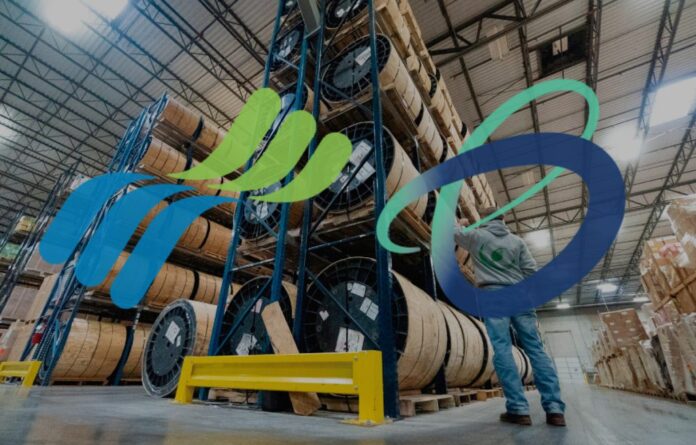Network design and services firm Betacom is helping logistics company Teltech Group to deploy a private LTE/5G network to automate its 200,000 square-foot warehouse in the Dallas/Fort Worth metropolitan area. The warehouse will be a “showcase for warehouse automation and Industry 4.0 IoT capabilities”, a statement said. US radio access network (RAN) provider Airspan Networks, a go-to RAN partner for Betacom, has been engaged also.
Founded in 1999, Teltech describes itself as a “Native American and woman-owned” service provider, offering third party logistics (3PL) and warehouse services, plus “solar power system development, talent resourcing and… tethered drones that provide broadband in hard-to-reach places”. It variously serves government entities, commercial organizations, tribal nations, wireless ISPs, and “tier-one” telecoms carriers.
But its third-party warehousing operation is the primary subject for the new network installation. The firm consolidated four local warehouses into a single large operations centres in the area in 2020 – “developing the entire space and supporting systems from scratch,” the statement goes. It said: “Its resources under management are many and varied so the systems required to track and enable their movement and deployment are increasingly sophisticated.”
The new cellular infrastructure – utilising the 3.55-3.7 GHz CBRS band in the US, and focused initially on LTE (4G), with an upgrade and expansion to 5G – will stand-up robots, drones, and automated forklifts. Data from these will be flowed two ways via the firm’s NetSuite enterprise resource planning (ERP) system, to enhance scanning capabilities and improve “material receiving, order fulfillment, and shipping”.
The new private network will also be used to help regional tribal nations bridge the digital divide, the press statement said. Teltech chief executive Lisa Hanlon-Knight is a citizen of the Cherokee Nation, it noted. Hanlon-Knight commented: “Many people think of the tribal nations as well-funded by casinos, but those are just a very, very small group within tribal nations overall.”
She continued: “Most lack the funding to leverage technology to build something sustainable and bring workforce development and jobs back to their communities, despite a lot of available public funding. Tribal support for building out private networks, not just in the tribal lands but also municipalities, will help them retain their citizens and accelerate workforce development through education and training.”
Danny Wade, chief operating officer at Teltech, added: “We all know that Wi-Fi is not the ultimate warehouse comms solution, especially when needs for high security and low latency are taken into account. A private 4G/5G network is a more secure and efficient environment for… proper device applications for automated cycle counting of inventory. This provides a huge relief to us at the warehouse resource level. With private wireless, we are able to retain the accuracy we need in our inventory levels, without allocating costly and hard-to-acquire human resources, allowing us to keep them more focused on higher-performing functions.”
Bellevue-based Betacom handles network design and service in public macro and private micro networks. It has helped US carriers AT&T, T-Mobile, and Verizon with their national 5G rollouts. For private wireless, it tends to prefer a familiar two-hander for radio (RAN) and core network provision, with Airspan Networks and Irish firm Druid Software, respectively. There is no mention of the latter in the press statement.
It focuses on the Industry 4.0 space for CBRS-based private cellular installs. In May, it confirmed work with Airspan Networks and Druid Software to deliver a private 5G network in the CBRS band for the Digital Manufacturing Institute and National Center for Cybersecurity in Manufacturing (MxD) in the US – as one of the first indoor private 5G deployments in the US, according to a press missive at the time.
A statement said the MxD project is focused on “bringing manufacturing back to the US”, through development of home-grown Industry 4.0 tech. It said: “The automation which sits at the core of the [Industry 4.0} movement can concentrate supply lines closer to customers, reduce the need for manual labour in manufacturing, drive new business models, and refine traditional business models to deliver next level goods and services.”
In June, Betacom was confirmed as a launch partner for Google Cloud’s entry into the private 5G market, alongside a bunch of specialist vendor and channel partners, also including Boingo Wireless, Celona, Crown Castle, and Kajeet. Google Cloud is going up against hyperscale mega-rivals Microsoft and AWS in the space, with a squarer focus (for now) on the big national carriers as a channel to enterprises.
Johan Bjorklund, chief executive at Betacom, said of the new Teltech deal: “Teltech is leading the way in adoption and promotion of advanced technologies enabled by private wireless, increasing their own efficiencies while empowering others to do the same through ongoing awareness and education. I am very proud of the work we are doing together and look forward to working with them to bring more people to a clear understanding of the benefits of automation that will lead to the realization of Industry 4.0.”

